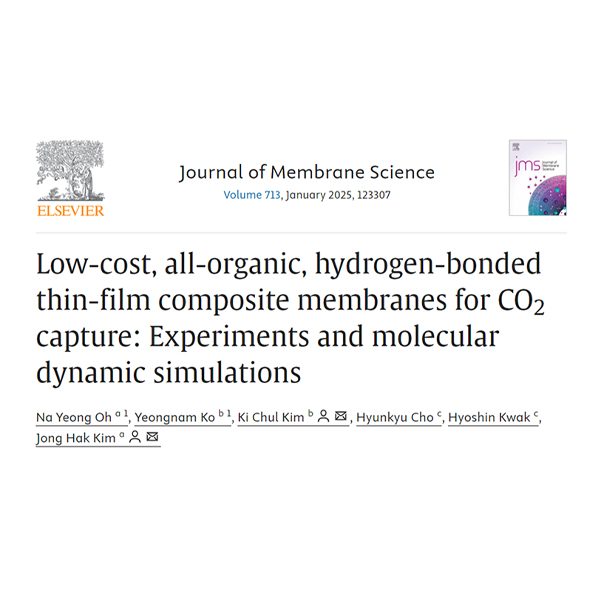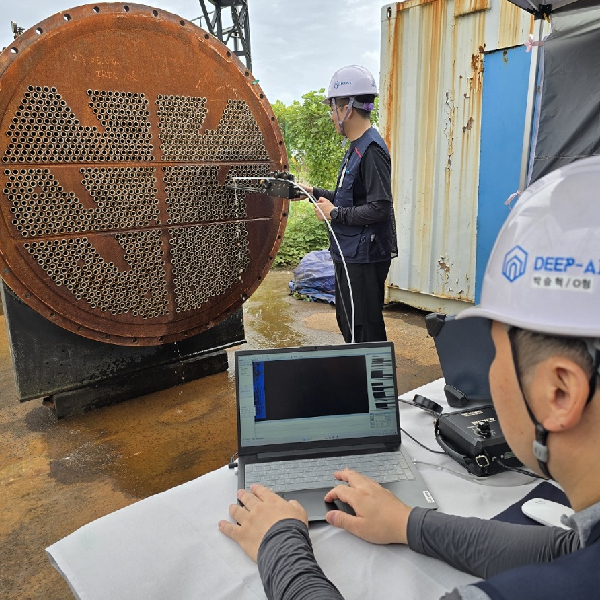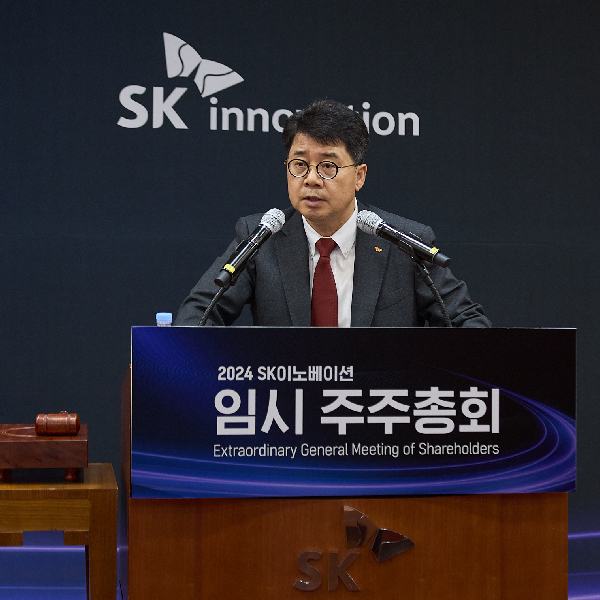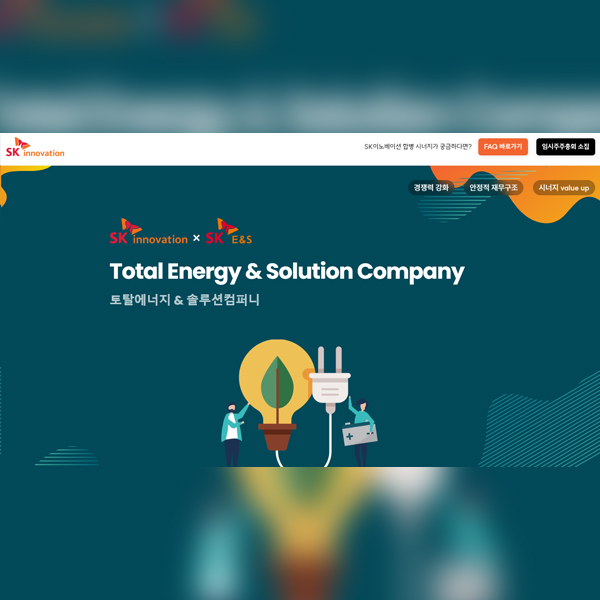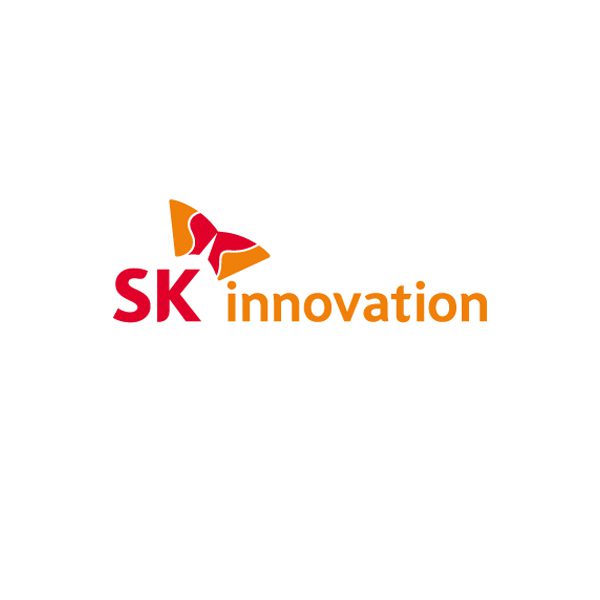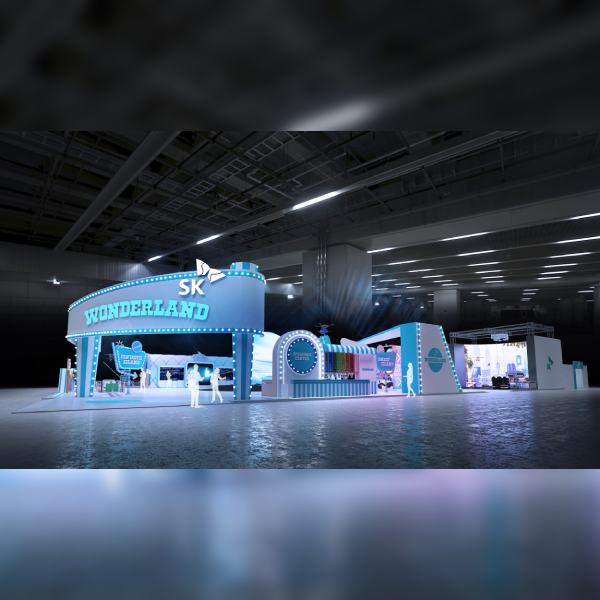 SK Innovation
SK Innovation■ Scholars from academia give an in-depth examination of SK Innovation’s 40 years of R&D management
– Identified “R&D Management Leadership” as the driving force behind the transition from a domestic refining company to a global green energy leader
– R&D Management contributed to the expansion and value creation in sectors such as chemicals, lubricants, separators, batteries, and biotech
– Strategy also played a pivotal role in SK’s global business growth in the green energy/material sector
■ 3 key success factors for R&D management that began with the petroleum industry and contributed to increasing corporate value were identified:
1) Strong leadership by late Chairman Chey Jong-hyon and current Chairman Chey Tae-won, who emphasized that growth is impossible without research and development.
2) The industry’s first initiative to foster domestic and international R&D, strengthening business competitiveness and conducting research into future ventures over the long term.
3) The company’s track record includes the introduction of the R&D-focused R&BD and MPR management system, as well as the cultivation of an organizational R&D management culture and system.
→ These efforts led to the development of the SKinno Way R&BD – the 4E Innovation Model.
■ The scholars who analyzed the results noted, “Through R&D management, SK has inculcated a competitive edge and unique identity to enhance future corporate value.”
■ Seong-jun Lee, Head of SK Innovation’s Institute of Environmental Science and Technology, emphasized, “Building on our long-accumulated core technologies and open global innovation, we will grow into a green energy global leader through innovative R&D, striving to achieve our goal of ‘All Time Net Zero.’”
SK Innovation, the nation’s largest energy enterprise, has successfully transitioned from a petroleum company to a global green energy leader. This evolution was primarily propelled by the robust leadership of top management in R&D management.
Respected corporate management experts of South Korea – Professor Jaeyoung Song from Seoul National University and Professor Ji-Hwan Lee from KAIST – offered a joint analysis of “40 Years of SK Innovation’s R&D Management.” Following their comprehensive review, the two professors shared these insights during a conference hosted on July 28 at the SK Seorin Building.
■ How SK Innovation’s R&D management transformed from a domestic petroleum company into a global green energy enterprise
During the presentation, the professors placed emphasis on SK’s groundbreaking R&D management, which was guided by a robust leadership framework and evidently proved instrumental in reshaping a domestically-rooted petroleum enterprise into a globally acknowledged green energy powerhouse, which surpassed comprehensive energy benchmarks.
This R&D management approach not only endowed SK Innovation, which faced near-term challenges in securing a stable crude oil supply, with unparalleled global competitiveness within the petroleum sector, but also played a central role in executing vertical integration.
The professors pointed out that the company was able to make pivotal contributions in advancing and commercializing core ventures such as chemicals, biotech, lubricants, separators, and batteries, due to its competitive edge in the petroleum industry and its diverse technical prowess. This foundational progress enabled the company to achieve autonomous management and empowered SK Innovation’s transformative journey towards becoming a forward-looking entity in green energy and materials. This influence extends to improve future value as well as complete the financial story in the direction of All Time Net Zero, which is currently being strongly promoted.
■ SK Innovation distinctive R&D management – SKinnoWay R&BD – 4E Innovation Model
Upon analysis of 40 years of SK Innovation’s R&D Management, scholars identified a distinctive management paradigm termed the “SKinnoWay R&BD.” This paradigm composes four essential components (4E): Entrepreneurship (management philosophy and challenges), Enhancement (reinforcement of the competitiveness of existing businesses), Exploration (development of new businesses with future-oriented outlooks), and Expertise (technical capability).
In their analysis of SK Innovation’s R&D, the professors highlighted not only the dedication to exceptional product quality, competitive pricing, process enhancement, and optimization, coupled with the accumulation of collective proficiencies in areas like catalysis, synthesis, and analysis, but also the organizational architecture that positions Research & Business Development (R&BD) as the linchpin of their competitive strategy. This approach has produced signature ventures like batteries, separators, lubricants, nexlene, and new drug development (the current bio business), which represent significant corporate value for SK Innovation and the SK Group as a whole.
Another one of the distinctive competitive advantages pointed out by the professors is SK Innovation’s status as the first Korean energy firm to establish an integrated technology research institute system. They also stressed the importance of strong leadership in ensuring the long-term success of R&D.
Citing examples, they mentioned late Chairman Chey Jong-hyon’s emphasis on the importance of R&D management shortly after acquiring a crude oil venture. Following his declaration to transition SK into a comprehensive energy company in 1982, he established a technology development research institute in 1983. SK Innovation’s 40-year R&D management journey starts from this point in time.
Additionally, current Chairman Chey has continually underscored the importance of R&D management, asserting that, “Technological advancement is imperative for substantial advancements in business. While we might not have attained this leap in fossil fuel-based energy, we can undoubtedly attain a prominent global position in the realm of green energy.”
Long-term investments in R&D have been consistently carried out, with ventures in batteries (1983) and bio (1989), established during the previous chairman’s tenure. These ventures are now spearheaded by Chairman Chey, culminating into the SK Group’s core future business cluster of batteries, biotech, and chips, known as BBC.
The professors also said that for SK Innovation, R&D must serve as the cornerstone of company’s overarching growth strategy. They brought attention to the integration of MPR (Marketing, Production, and R&D) operational methodologies into SKMS (SK Management System) and the SUPEX pursuit methodology. This integration ensures that R&D perpetually remains at the core of the company’s operations. MPR, initially established in 1989, symbolizes SK’s distinctive management approach, focusing on the synchronization of R&D, production, and sales to heighten business competitiveness. This approach further evolved into MPR/S/T (MPR, S-Staff, T-Top) in 1995, placing emphasis on harmonizing support departments and top management for a cohesive collaboration.
■ R&D management’s crucial role in forging future value for SK Innovation
In their culmination of analysis, the professors suggested that SK Innovation’s reinforced R&BD management represents a pivotal strategic initiative chosen to actualize the realization of its new identity as a green energy & materials leader. They elaborated that this approach is grounded in a strategic trajectory built upon accumulated technological proficiencies, business acumen, and experiential knowledge. To concretely advance this approach, continuous support through systemic enhancements, organizational operational systems, and cultural innovations becomes imperative.
More specifically in the context of forward-looking green energy and materials ventures, global collaboration holds the key to triumph. Therefore, SK Innovation’s R&D, coupled with its R&BD capacity, is poised to occupy a significant role, highlighting the establishment of the Open Innovation Center in Silicon Valley—a nucleus of advanced U.S. technology—as a starting point for this role. The acquisition of SK Innovation’s R&D foothold in the United States represents the second occurrence, following the establishment of the bio business on the U.S. East Coast in 1989.
Furthermore, SK Innovation has executed several transformative changes, including the renaming of the Technology Innovation Research Institute to the SK Innovation Institute of Environmental Science and Technology since 2021. The research workforce within the SK Innovation group has been significantly augmented, with approximately 1,800 researchers secured by the end of 2016, tripling the number from the end of 2021. Concurrently, the Institute of Environmental Science and Technology has been linked to the company’s portfolio division, bolstering the organization’s comprehensive capability for new business development.
Professors Jaeyoung Song and Ji-Hwan Lee, who led this project, commented, “Beyond the growth and competitive advantage that SK Innovation has garnered through 40 years of R&D management, we expect the next 40 years to be characterized by the creation of a uniquely novel identity, enhancing future corporate value.”
Seong-jun Lee, Head of SK Innovation Institute of Environmental Science and Technology, emphasized, “The results of this project affirm the sustained augmentation of SK Innovation’s corporate value through R&D management over the past four decades. We anticipate that by attaining the ‘All Time Net Zero’ goal through pioneering R&D efforts and continual institutional, systemic, and cultural innovation, we will evolve into a global frontrunner in the realm of green energy.”
[Reference. SK Innovation R&BD – SKinnoWay : 4E Innovation Model]
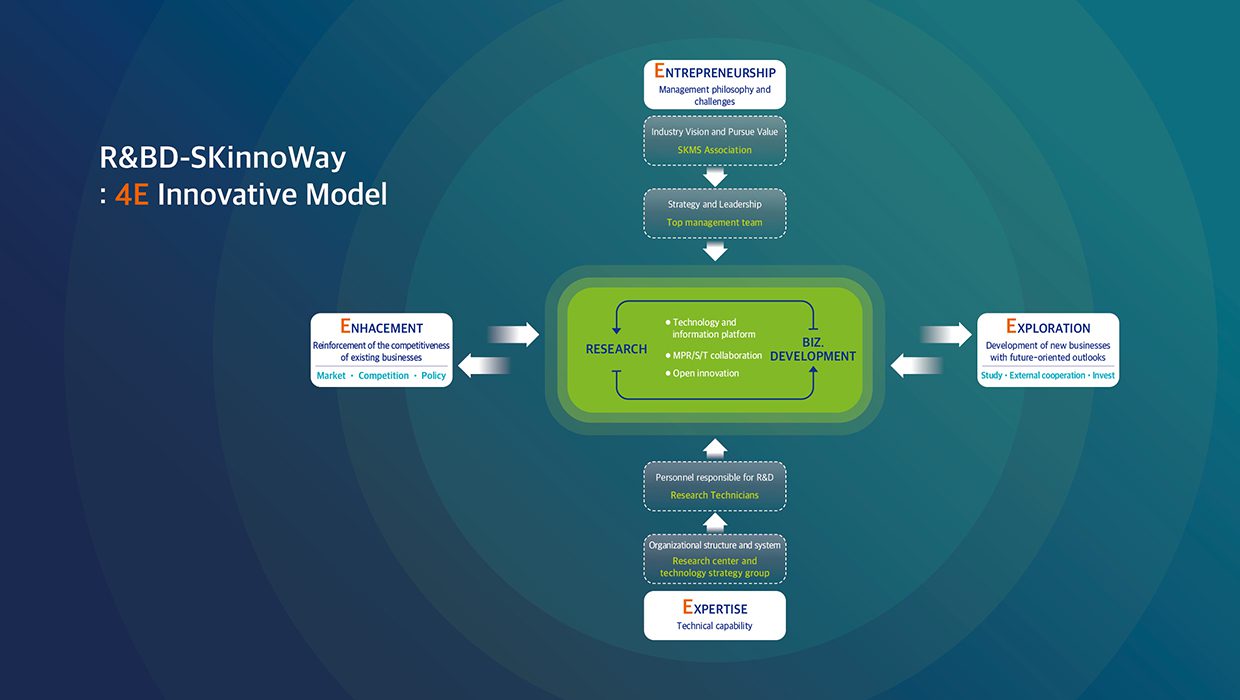
[Photos]
(Photo 1) Professor Jaeyoung Song from Seoul National University presenting his joint research on “40 years of SK Innovation’s R&D Management.”
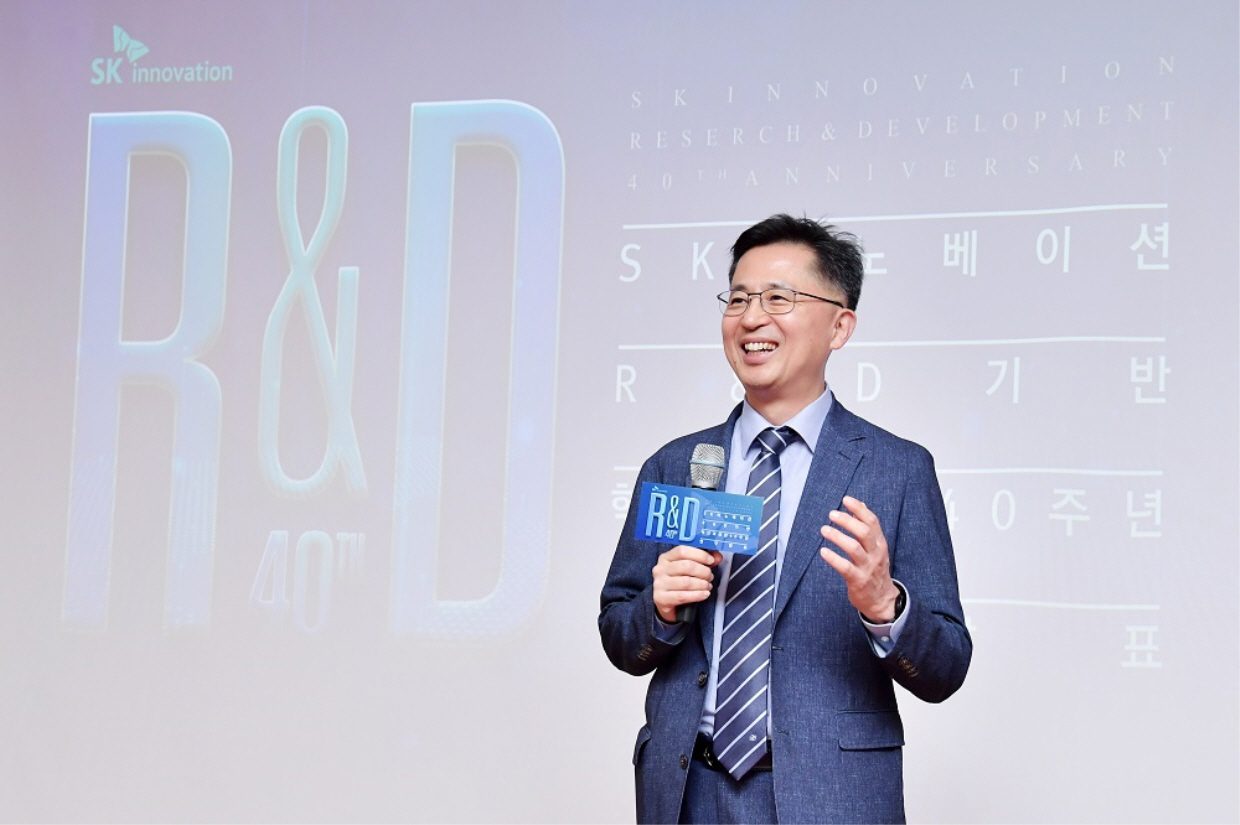
(Photo 2) Professor Ji-Hwan Lee from KAIST presenting his joint research on “40 years of SK Innovation’s R&D Management.”
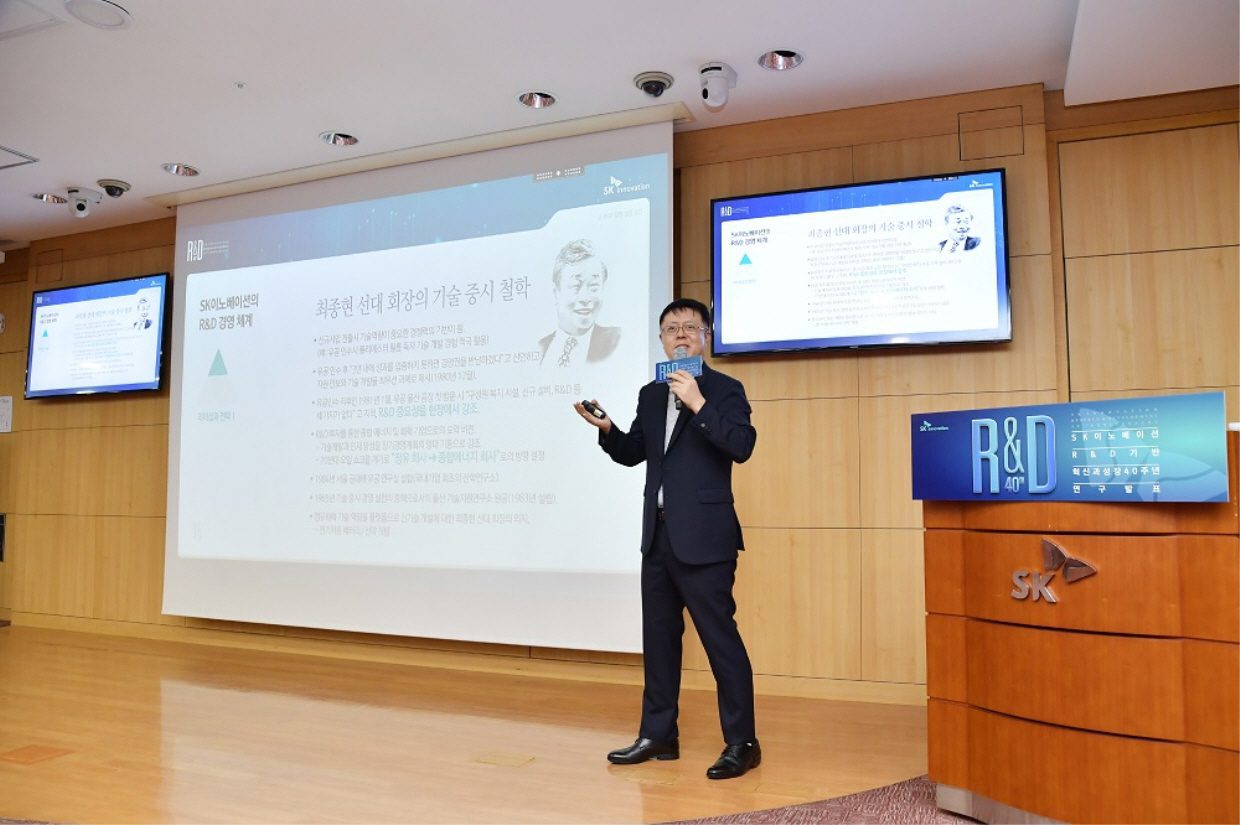
(Photo 3) Seong-jun Lee, Director of SK Innovation’s SK Innovation Institute of Environmental Science and Technology, giving closing remarks.
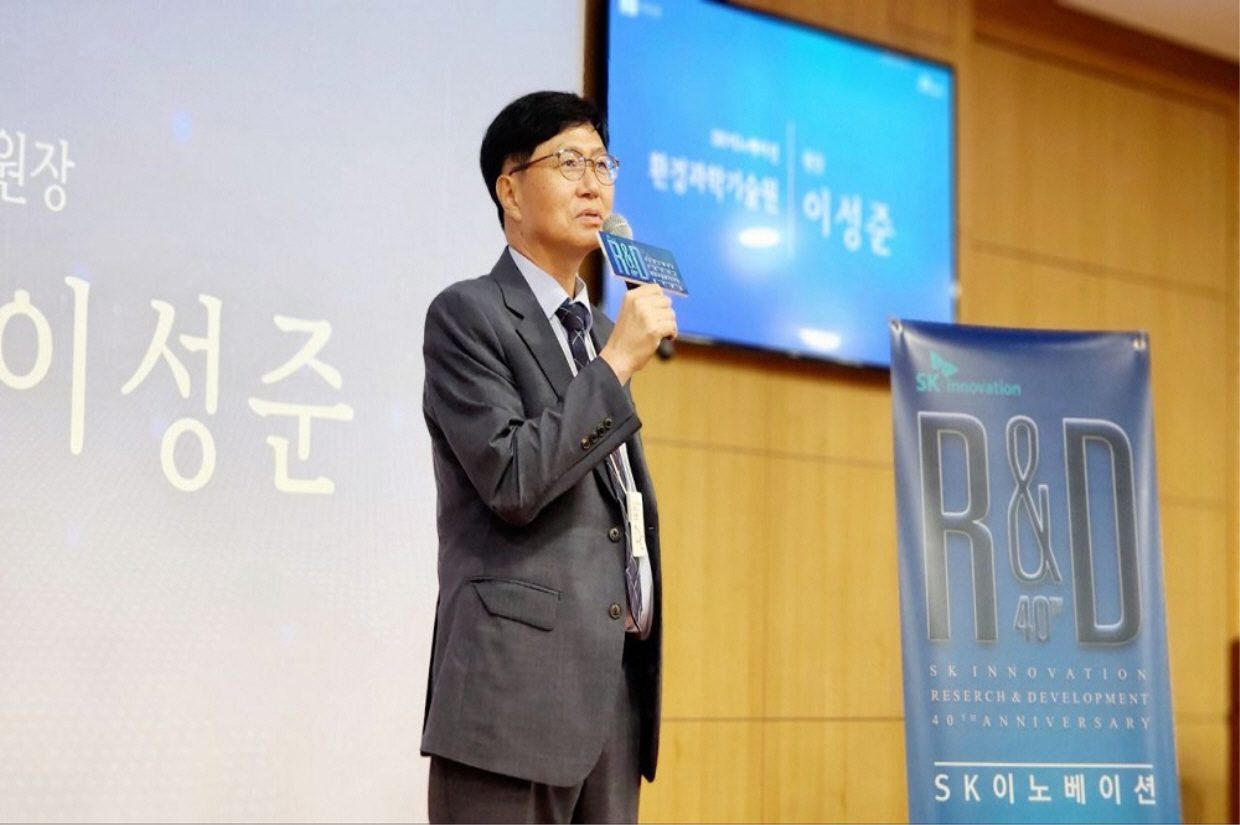
(Photo 4) (From the left) Professor Ji-Hwan Lee from KAIST , Seong-jun Lee, Director of SK Innovation’s SK Innovation Institute of Environmental Science and Technology, Professor Jaeyoung Song from Seoul National University
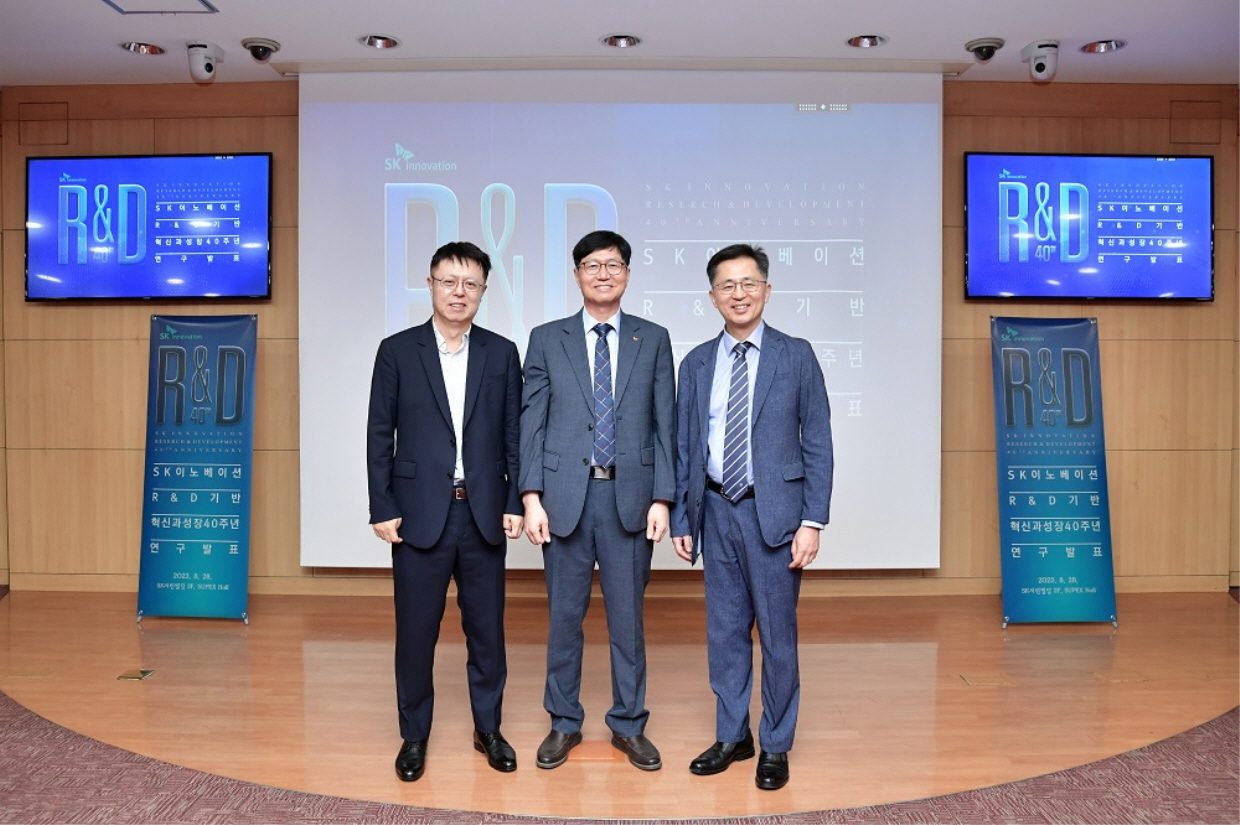











 Youtube
Youtube Facebook
Facebook Instagram
Instagram Linkedin
Linkedin









